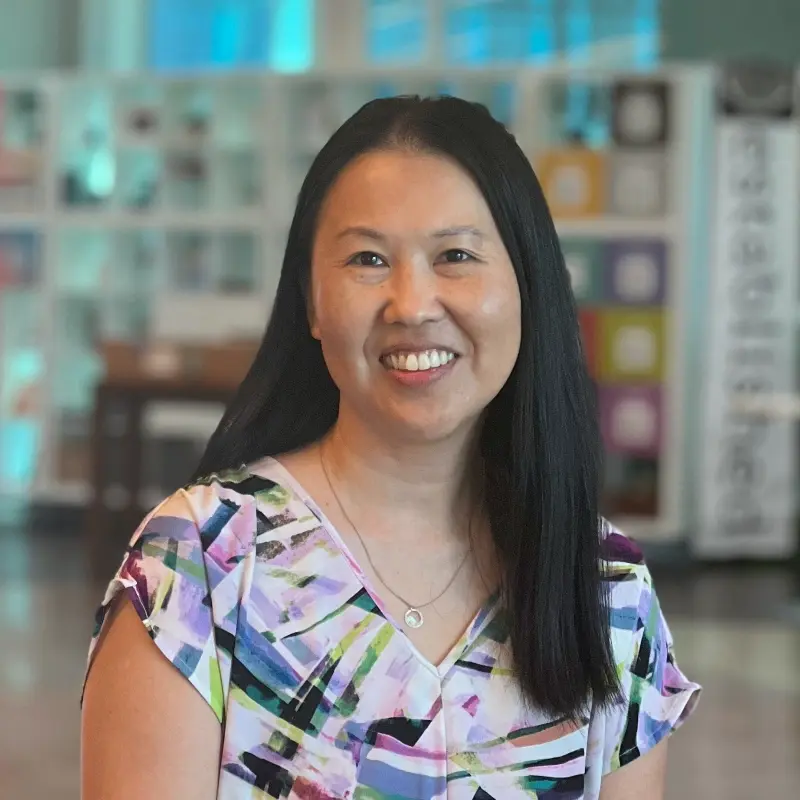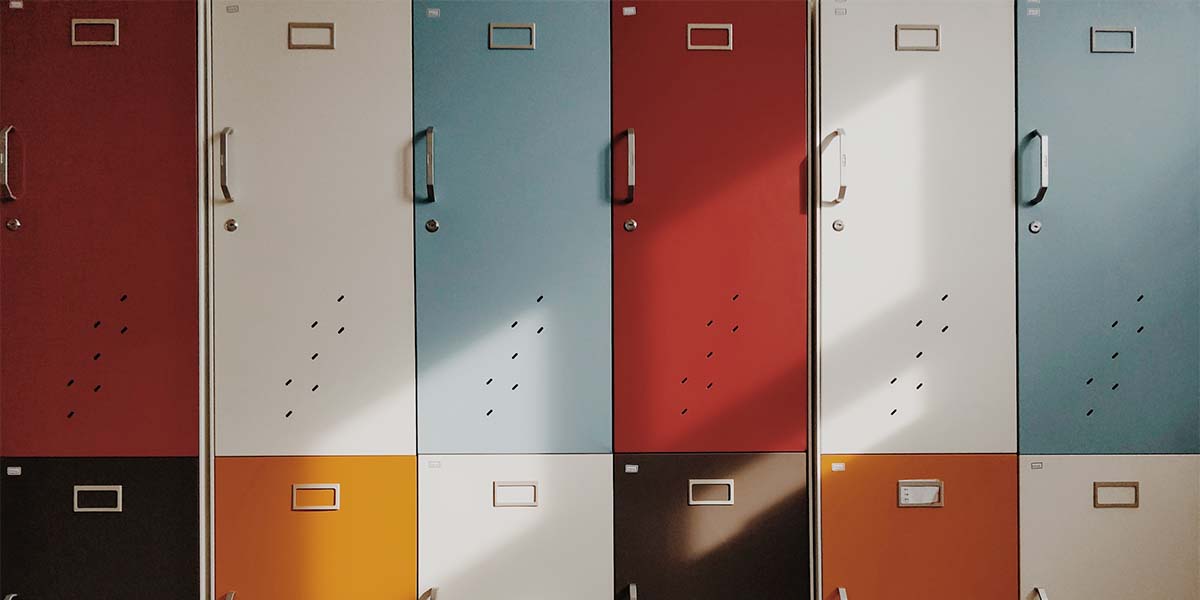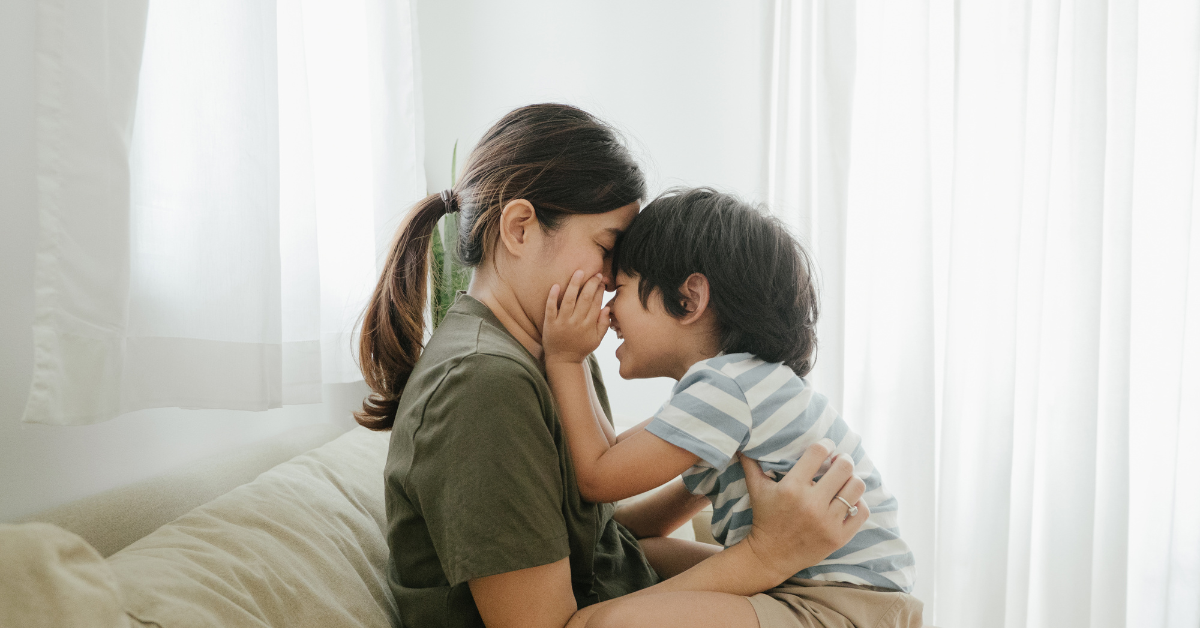
Peaceful Parenting for Perfectionists
Would you rather listen? Click the arrow above. Ready to read? Scroll on.
Years before my husband and I had children, I remember spending time with some friends who were new parents. Sleep-deprived and thankful for the meal we brought along, our friend told us, “You will never realize how much you can worry until you become a parent.” I was a bonafide worry wart, so I laughed off his statement as a tongue-in-cheek sentiment from a bleary-eyed new father. Now, with four children of our own, I understand his statement with a depth beyond what I could have ever conceived at that point. Parents often feel pressured to be perfect, but it’s peaceful parenting, and acceptance of imperfection, that lets us truly connect with our children.
Prone To Worry
My kids span a decade - in that decade, I have seen the American Academy of Pediatrics rules change from advising the avoidance of peanut or tree nut consumption during pregnancy to encouraging eating high-allergen foods during pregnancy. I’ve seen baby food change from jars to pouches, the concept of helicopter parenting morph into lawnmower parenting, and the rise of homemade YouTube videos as an entertainment and career source. In a world of rules and opinions all over the internet and our news feeds, from professionals to seasoned moms, how is one to know what’s right and “the best” for our kids? And, especially for a personality type that is already prone to worry, how will we ever find the oasis of peaceful parenting?
I was at Target about a year ago, and observed a mom that I instantly wanted to be like. She had her brood around her, walking the aisles, when one accidentally dropped and spilled her entire raspberry blue Icee on the floor. The little one started crying, and the mom calmly told her to breathe, “It was an accident, it’s not a big deal. We can clean up the mess together and get another Icee.” As they gathered up paper towels and mopped up the bright blue melting mound, the mom continued to calmly talk to her child and explain, “See, we can always clean up our messes. We can do this, it’s okay.” I wanted to be her, or maybe I wanted her to mother me.
Acting From Anxiety
Let’s picture how an anxious parent could possibly react to a simple case of a spilled drink:
- Anxious parent A’s reaction is to become stressed and/ or angry. She may do what she needs to, such as get paper towels and clean up the mess, but her tone and attitude tell her child that she’s frustrated at his mistake. And, ultimately, that making mistakes is not acceptable.
- Anxious parent B’s immediate thought after such an accident is to second guess himself. “Oh no, I should have checked that her lid was on tightly. I shouldn’t have let her use that cup. I should be more aware of where my kids are at developmentally and know whether or not she could handle an Icee.” His internal voice berates him into believing that he isn’t allowed to make mistakes, or that somehow he’s the reason why accidents happen.
- Anxious parent C is in constant research mode. “Okay, so to ensure that my child will never spill his drink again, let me made sure I have the most spill-proof cup on the market, and next time I’ll pour the Icee in that cup.” And off he or she goes on the internet, searching ratings and comments and measuring which item, or parenting style, or product will most likely ensure the “best” outcome for their child.
Connection With Imperfection
The reality is that I can relate to all three of the anxious parenting dynamics above. I often tell my clients that I believe that God led me to the counseling field in order to parent my children better. The main thing that I have learned in my schooling, through my clients in family therapy, and my own kids is that what our children need more than a perfect parent is connection with an imperfect parent.
As Sue Johnson states as the basis of her book Love Sense, our need for connection is “our first and most primary instinct.” Karyn Purvis says more pragmatically in The Connected Child: “Make a conscious effort to mentally shift gears and put aside whatever you’re doing when your child is speaking. Look at your child directly and kindly when he or she is speaking. Those minutes of full attention don’t take a great deal of your time, but are a huge gift to your child. Eye contact goes a long way in cementing the parent-child connection.”
Be Present In The Process
I have an exercise for you. Think about what you value. What aspects of life and relationships are important to you? Is it important for you to have quality time with your loved ones, consistent moments that you would consider memory makers? Is it important for you and your family to serve your community, and help build others up? Is it a value of yours to provide learning and growing opportunities for yourself and your family? Perhaps creativity and involvement in the arts is a high value for you. We all have different things that we hold of value and it is important to be intentional in both understanding and honing those values. In a family, the dance of melding different values into a joint effort is integral. However, what happens when we confuse what we value with what makes us valuable? If connection and my family relationships are a high value for me, but my anxiety warps it into “being a good parent with good children is what makes me valuable," I can end up focusing on the outcome instead of being present in the process. Which, ironically, draws me away from my value of connectedness and into the self-absorbed processes of my own head.
It’s OK To Make Mistakes
Sue Johnson writes that “love is a constant process of tuning in, connecting, missing and misreading cues, disconnecting, repairing, and finding deeper connection. It is a dance of meeting and parting and finding each other again. Minute to minute and day to day.” The fact of the matter is: We WILL mess up! We WILL be anxious parents (well, besides the cool moms like the one at Target), but my encouragement is for us all to own it and be kind to ourselves in our mistakes. Let’s recognize that we do have anxiety in this way-too overwhelmed-with-information world, and be willing to tell ourselves and believe that it’s okay to make mistakes.
The outflow of this internal grace helps lay the foundation for our children that failures and missteps are to be expected and forgiven, and helps us focus on connecting with them each step of the way.
Peaceful Parenting Tips
Try these steps to help guide you into more peaceful parenting:
- Acknowledge your anxiety and insecurities as a parent. Reflect on what those anxieties and insecurities may be calling out for you to acknowledge regarding your personal fears.
- Ponder the things that you hold of value. How might you confuse those things with what makes you valuable?
- Be kind to yourself, and keep working on connection. Teach these things to your children. Let them know that it’s okay to make mistakes, and tangibly express that you are their biggest cheerleader. Interestingly enough, part of that is by mirroring consistent encouragement to yourself.
World’s most okay parents unite!
If these tips speak to you, but you’d like to explore more about peaceful parenting, connect with me at Lifeologie Counseling Frisco, Texas, explore our parenting resources, or request an appointment from our team.

About Jenny Wang
Jenny Wang, LPC-S, earned her BA in Psychology with a Minor in Women’s Studies from the University of Texas, and an MA in Biblical Counseling from Dallas Theological Seminary. She is trained in Accelerated Resolution Therapy (ART) and in EMDR, and specializes in working with teens and families experiencing trauma, abuse, depression, dissociative disorders, anxiety, OCD, stress, life transitions, and grief. She also works with immigrant Chinese parents to bridge the generational and cultural gap that they and their Asian-American children can find themselves in. She enjoys incorporating brain science and practical techniques to help facilitate understanding and connection in her practice. She is the clinical director of Lifeologie Counseling Frisco, Texas, where she sees individuals and families.
Meet Me



